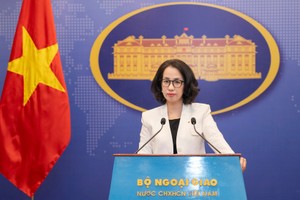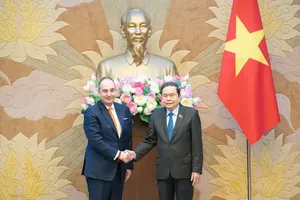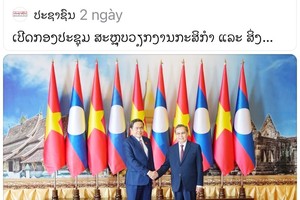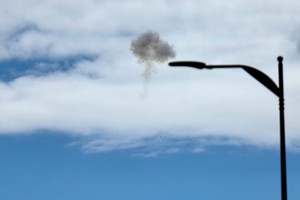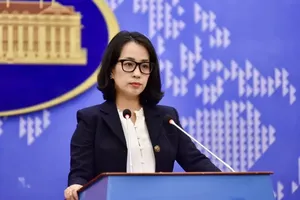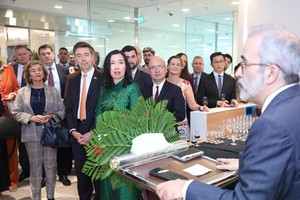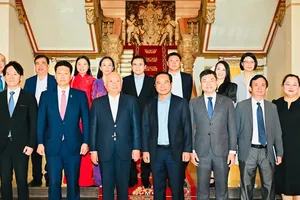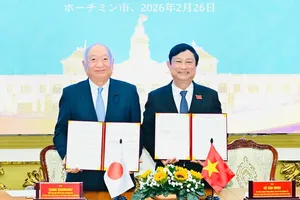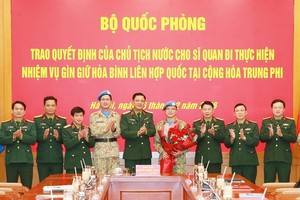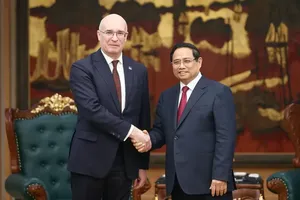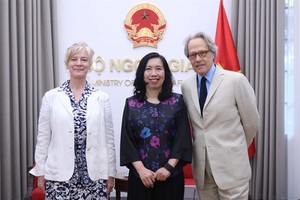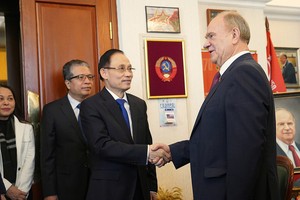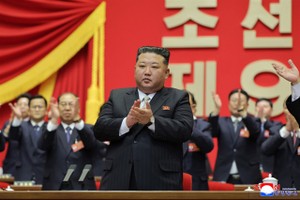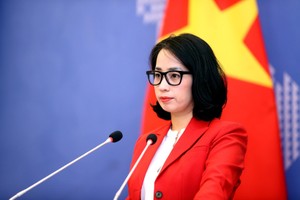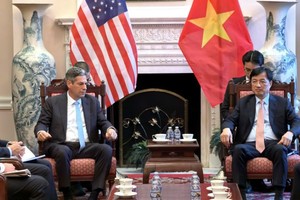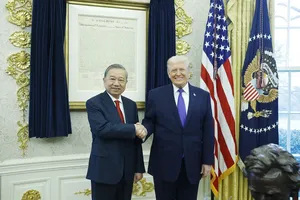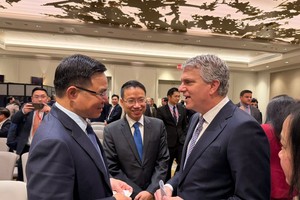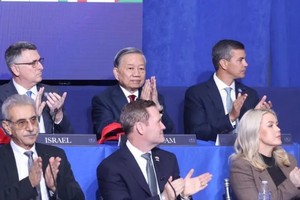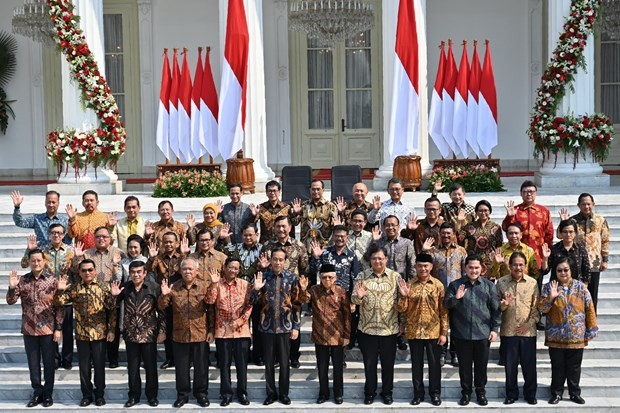
Widodo has appointed former Industry Minister Airlangga Hartarto as Coordinating Economic Minister and retained economist Sri Mulyani Indrawati as Finance Minister.
Prabowo Subianto, opposition leader in Widodo’s first term and sole challenger in the April election, has been named Defence Minister.
Indonesian ride-hailing and online payment firm Gojek co-founder and CEO Nadiem Makarim has been chosen to serve as Culture and Education Minister while Arifin Tasrif, who used to lead a state-owned fertiliser maker, has been selected as Energy and Mineral Resources Minister.
The president's long-term ally Luhut Pandjaitan meanwhile retained his role as Coordinating Minister for Maritime Affairs, who also oversees the natural resources sector and investment.
On October 20, President Joko Widodo was officially sworn in for his second term with a pledge to take bolder actions in infrastructure development.
He has pledged to invest heavily in infrastructure, and develop tourism and agriculture hubs which connect sea ports and airports nationwide.
He said his Government will focus on improving the country’s human resources in the context that Indonesia is lagging behind neighbouring countries in terms of skilled workers.
In addition, he committed to rolling out red carpet to both domestic and foreign investors, considering them as important sources to create more jobs in the country.
He pointed out that corruption and group interest are the main barriers to the foreign capital flow into the Indonesian economy.
Prabowo Subianto, opposition leader in Widodo’s first term and sole challenger in the April election, has been named Defence Minister.
Indonesian ride-hailing and online payment firm Gojek co-founder and CEO Nadiem Makarim has been chosen to serve as Culture and Education Minister while Arifin Tasrif, who used to lead a state-owned fertiliser maker, has been selected as Energy and Mineral Resources Minister.
The president's long-term ally Luhut Pandjaitan meanwhile retained his role as Coordinating Minister for Maritime Affairs, who also oversees the natural resources sector and investment.
On October 20, President Joko Widodo was officially sworn in for his second term with a pledge to take bolder actions in infrastructure development.
He has pledged to invest heavily in infrastructure, and develop tourism and agriculture hubs which connect sea ports and airports nationwide.
He said his Government will focus on improving the country’s human resources in the context that Indonesia is lagging behind neighbouring countries in terms of skilled workers.
In addition, he committed to rolling out red carpet to both domestic and foreign investors, considering them as important sources to create more jobs in the country.
He pointed out that corruption and group interest are the main barriers to the foreign capital flow into the Indonesian economy.
